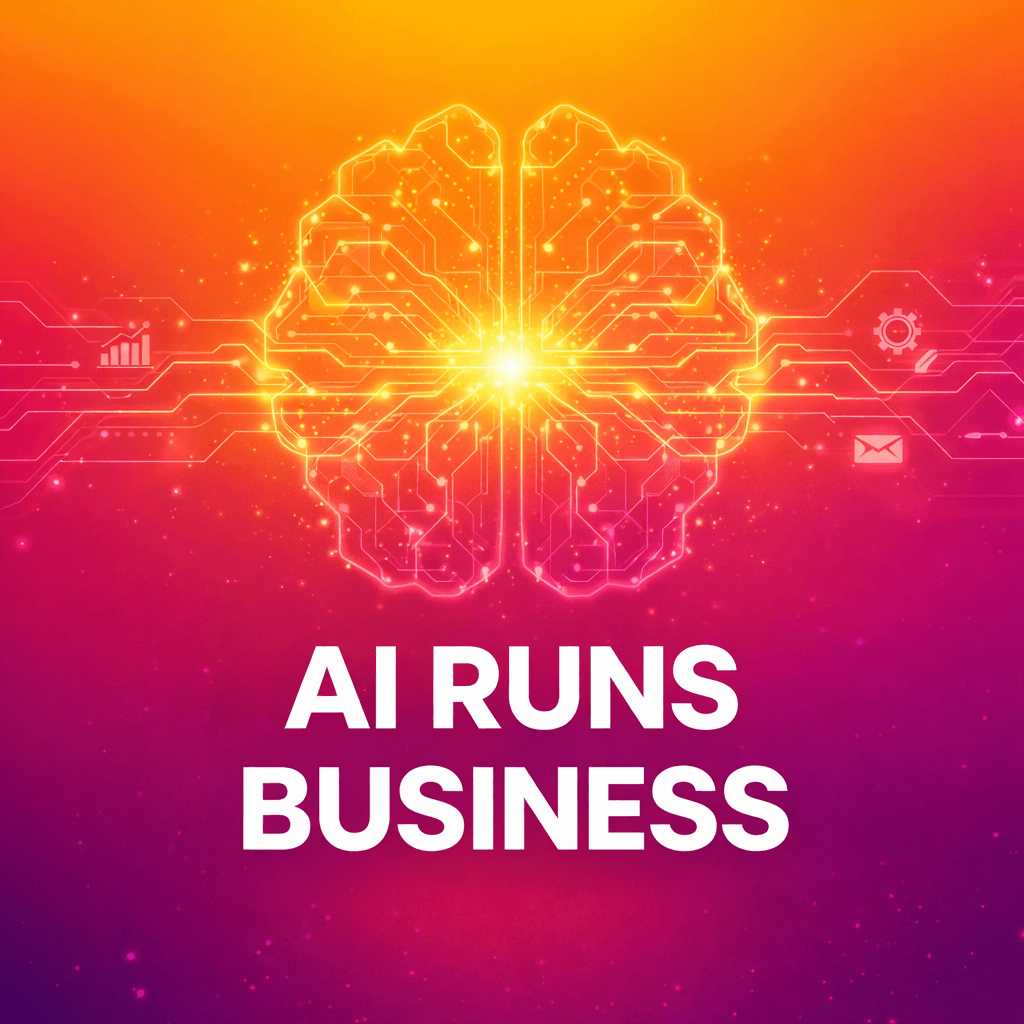
The Transformative Role of AI in Business Management
Artificial intelligence (AI) is revolutionizing the landscape of business management, driving efficiency and innovation across various industries. This article delves into how AI is reshaping business practices, providing insights into its numerous applications and benefits. By understanding the potential of AI, business leaders can leverage this technology to stay competitive and transform their operations.
Outline
- What is AI and How is it Used in Business Management?
- The Benefits of Integrating AI in Business
- AI in Business Management: Key Applications
- How AI is Transforming Customer Relationship Management
- The Role of AI in Supply Chain and Inventory Management
- Generative AI: Creating New Opportunities for Businesses
- Implementing AI in Business: Challenges and Solutions
- The Future of AI in Business Management
- AI and Human Intelligence: A Symbiotic Relationship
- Real-world Examples of AI in Business
What is AI and How is it Used in Business Management?
Artificial intelligence refers to the simulation of human intelligence in machines that are programmed to think and learn. AI technologies are utilized in business management to enhance decision-making processes, automate tasks, and provide insights through data analysis. AI can help streamline operations and improve efficiency in various business functions.
The integration of AI in business management has led to the development of advanced AI systems that can handle complex tasks requiring human intelligence. This adoption of AI is transforming how businesses operate, making processes more efficient and reducing the margin of error. The use of AI in business management is a crucial step towards modernizing and optimizing business processes.
The Benefits of Integrating AI in Business
Integrating AI in business offers numerous benefits. One of the most significant advantages is the automation of routine tasks. AI can automate repetitive tasks, allowing employees to focus on more strategic activities. This not only increases productivity but also enhances job satisfaction.
Another key benefit is improved decision-making. AI algorithms analyze vast amounts of data to provide actionable insights. Business leaders can leverage AI to make informed decisions, identify trends, and predict future outcomes. The role of AI in business management is critical in maintaining a competitive edge.
Additionally, AI enables businesses to optimize various operations, such as supply chain management and inventory management. By predicting demand and managing logistics efficiently, AI helps reduce costs and improve overall efficiency.
AI in Business Management: Key Applications
AI is used in various business applications to enhance efficiency and innovation. Some key applications include:
- Project Management: AI tools help in planning, scheduling, and resource allocation, ensuring projects are completed on time and within budget. AI can also assist in monitoring project progress and identifying potential risks, making project management more effective.
- Data Management: AI can analyze large datasets to identify patterns and trends, providing valuable insights for strategic planning. AI and machine learning techniques are employed to process and interpret complex data, enhancing data-driven decision-making.
- Customer Service: AI-powered chatbots and virtual assistants offer 24/7 customer support, improving customer satisfaction and reducing operational costs. AI can analyze customer interactions to personalize responses and improve service quality.
Here is a video for a more detailed take on AI for Business Leaders:
How AI is Transforming Customer Relationship Management
AI is revolutionizing customer relationship management (CRM) by providing personalized experiences and improving customer interactions. AI can analyze customer data to predict preferences and behavior, enabling businesses to tailor their offerings.
For example, AI can assist in segmenting customers based on their purchasing history, allowing for targeted marketing campaigns. The integration of AI in CRM systems also enables real-time responses to customer queries, enhancing customer engagement and loyalty. AI can create more effective customer outreach strategies, ensuring that businesses can meet their customers' needs more efficiently.
The Role of AI in Supply Chain and Inventory Management
AI plays a crucial role in supply chain and inventory management. AI algorithms can predict demand, optimize inventory levels, and manage logistics. By utilizing AI, businesses can reduce costs, improve efficiency, and minimize the risk of stockouts or overstocking.
AI also enables real-time tracking of goods, providing visibility into the supply chain. This helps in identifying potential disruptions and taking proactive measures to mitigate risks. The implementation of AI in supply chain management is transforming the way businesses operate, leading to more resilient and efficient processes.
Here is a flowchart depicting how AI algorithms optimize supply chain and inventory management processes:

Generative AI: Creating New Opportunities for Businesses
Generative AI is a subset of artificial intelligence that focuses on creating new content, such as text, images, and music. This technology is opening up new opportunities for businesses, particularly in marketing and content creation.
For instance, generative AI can create personalized marketing content based on customer preferences. It can also generate product designs, reducing the time and cost associated with traditional design processes. By leveraging generative AI, businesses can enhance their creativity and innovation.
To explore how generative AI can be applied to your business, visit SalesMind AI.
Implementing AI in Business: Challenges and Solutions
While the benefits of AI are clear, implementing AI in business management comes with its challenges. One of the main obstacles is the lack of technical expertise. Businesses need skilled professionals to develop and maintain AI systems.
Another challenge is data privacy and security. As AI systems rely on vast amounts of data, ensuring data protection is crucial. Businesses must implement robust security measures to safeguard sensitive information.
To overcome these challenges, businesses can invest in training programs to upskill their workforce. Collaborating with AI solution providers can also help in integrating AI technologies effectively. The integration of AI requires careful planning and execution to ensure a smooth transition and maximize benefits.
Consider leveraging AI tools for your business by exploring solutions like SalesMind AI's LinkedIn Prospecting Automation.
The Future of AI in Business Management
The future of AI in business management looks promising. AI is expected to become more integrated into various business functions, driving further automation and innovation. Emerging AI technologies, such as quantum computing, will enhance AI capabilities, providing more powerful tools for businesses.
The rise of AI will also lead to new business models and opportunities. Businesses that embrace AI will be better positioned to adapt to changing market conditions and customer needs. The future of AI in business is bright, with endless possibilities for growth and transformation.
AI and Human Intelligence: A Symbiotic Relationship
AI and human intelligence complement each other, creating a symbiotic relationship. While AI can handle repetitive tasks and analyze data, human intelligence is essential for strategic thinking and creativity. By combining AI and human intelligence, businesses can achieve optimal results.
AI enables employees to focus on high-value tasks, such as innovation and problem-solving. This collaboration between AI and human intelligence leads to more efficient and effective business operations. Embracing AI allows businesses to harness the full potential of their workforce, driving innovation and success.
Real-world Examples of AI in Business
Several companies have successfully integrated AI into their business operations. For example, Netflix uses AI to recommend content to its users based on their viewing history. This personalized approach has significantly improved user engagement and retention.
In the retail sector, AI is used to optimize inventory levels and manage supply chains. Retailers can predict demand more accurately and ensure products are available when customers need them.
In the finance industry, AI algorithms are employed to detect fraudulent activities, enhancing security and trust. AI solutions are also used in healthcare to diagnose diseases and recommend treatments, improving patient outcomes.
These real-world examples highlight the transformative potential of AI in business. By leveraging AI technologies, businesses can drive innovation and stay ahead of the competition. Implementing AI in business management can lead to significant improvements in efficiency, customer satisfaction, and overall performance.
To get started with implementing AI in your business, sign up for SalesMind AI's services.
Summary
- AI is revolutionizing business management by enhancing efficiency and innovation.
- Integrating AI in business offers numerous benefits, including automation and improved decision-making.
- Key applications of AI in business include project management, data management, and customer service.
- AI is transforming customer relationship management by providing personalized experiences.
- AI plays a crucial role in supply chain and inventory management, reducing costs and improving efficiency.
- Generative AI is creating new opportunities for businesses in marketing and content creation.
- Implementing AI in business comes with challenges, such as technical expertise and data privacy.
- The future of AI in business management is promising, with emerging technologies driving further innovation.
- AI and human intelligence complement each other, leading to more efficient business operations.
- Real-world examples demonstrate the transformative potential of AI in business.
By understanding and leveraging the power of AI, businesses can transform their operations and achieve long-term success. Embracing AI and automation will not only streamline business processes but also unlock new opportunities for growth and innovation. The integration of AI into business management is essential for staying competitive in today's rapidly evolving business landscape.


.avif)


